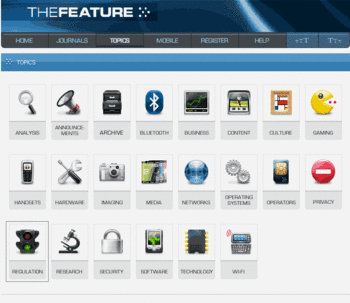How To Safeguard Freedom Of Access To Information For Everyone? A Collaborative Manifesto
"Will the people at fifth and main have the right and power to read and write information about their neighborhood, or will the owner of a local franchise purchased from the city by a private interest (think about the way cable television operates) dominate?"

Howard Rheingold
“Nowadays, online manifestos often work best as seeds for group conversation, rather than an individual's attempt to start with the last word.I'll stake a modicum of public embarrassment on the possibility that I can talk people I don't know yet into helping me write this piece: I'll start the discussion about the way the mobile Internet future ought to look by posting this draft manifesto; I invite you to suggest revisions and additions.
If readers contribute enough valuable feedback, I'll incorporate it and post a revised version as a comment.
The devices that most people on earth will carry or wear in coming decades could become platforms for technical and entrepreneurial innovation, foundations for industries that don't exist yet, enablers of social and political change.
However, it is far from certain that mobile media will go the route of the PC, where teenage dropouts like Bill Gates and Steve Jobs and millions of others actively shaped the technology, or the Internet, where search engines were invented in dorm rooms and innovators like Tim Berners-Lee gave away the World Wide Web for free without asking permission or changing any wiring. ”
With these paragraphs Howard Rheingold starts his plea for an open mobile internet future.
The channel Rheingold chose for his manifesto draft in itself is interesting: he picked TheFeature, an independent news and information community Website sponsored by Finnish mobile device manufacturer Nokia. TheFeature hosts an open community discussing a wide range of topics related to wireless and mobile computing.
Rheingold's concerns are genuine and righteous, considering that within the next decade mobile net-enabled devices will be used on a much larger, global scale than any other tool currently available. Not just the distribution itself will be different: making simple phone calls will be just one out of dozens of applications offered to mobile phone users. It's not only time to declare the name 'mobile phone' obsolete—I suggest we caressingly start calling them mobies from now on—Rheingold urges us to start collecting ideas how the freedom of access to information for anyone can be safeguarded:
“Everybody should have the freedom to associate information with places and things, and to access the information others have associated with places and things.When manufacturers find out that consumers are using barcodes and RFID information to access globally-available information about their products and practices, are they going to stand still for that?
...
People like myself used to think that "the Internet interprets censorship as damage and routes around it," but we're seeing authoritarian governments build their censors into their routers.
Is there any better reason to believe that people will continue to have the freedom to read and write to specific parts of the geoweb?
Will geoweb information gathered at public expense (such as weather or geographic data) become controlled exclusively by private owners?
What else would you add to this list of fundamental rights?
What enablers and roadblocks do you see to the capabilities I've listed and to those you would add?”
In the discussion thread following the first draft of his manifesto, Rheingold replies with these right-on-the-mark sentences to someone pointing at the enormous socio-economic inequities in countries like India and China:
“ agree -- literacy is key. Access to hardware and services is already reaching the poorest sectors. But do they know how to use them? Can the devices be used as conduits to education?The gap, increasingly, is not between haves and have nots, but between those who know how to use the tools they have, and those who don't.”
To add your own comments, you first need to register with TheFeature.(to avoid registration see BugMeNot).
Go say what you think!
Reference: TheFeature [ Read more ]


blog comments powered by Disqus